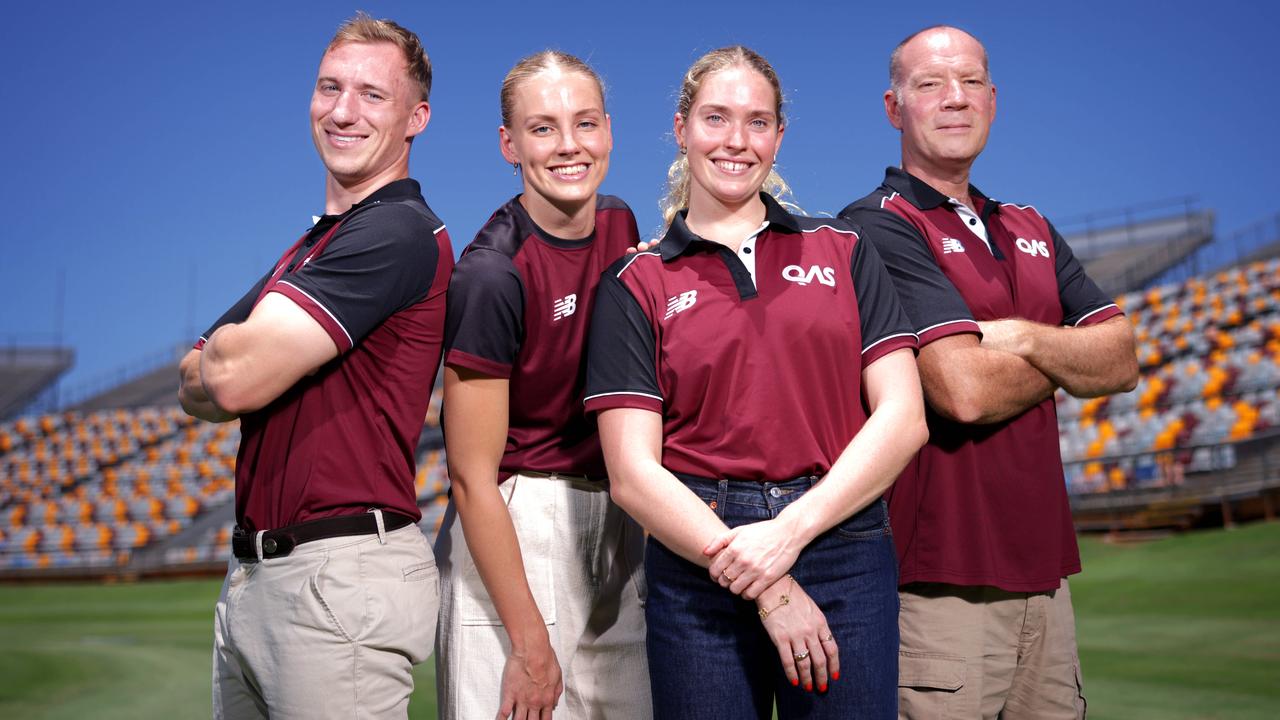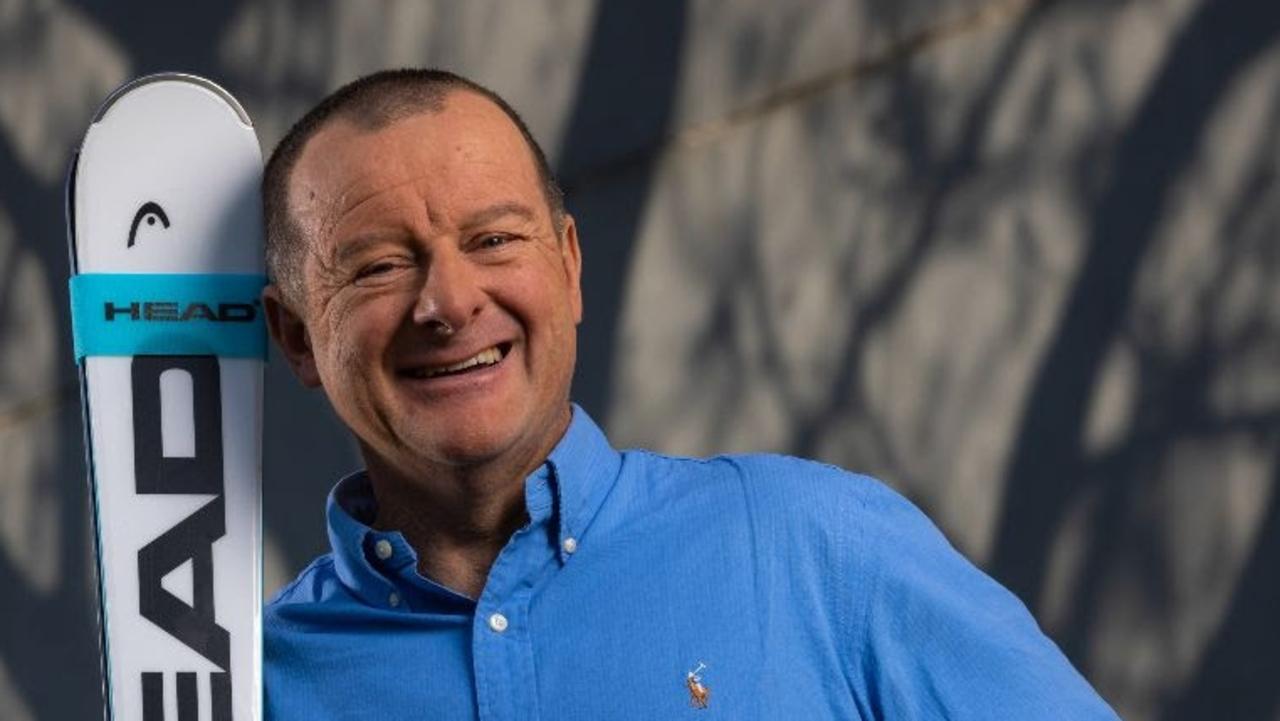Tokyo Paralympics: Kayaker Curtis McGrath picks up his second gold medal for the Games
Former soldier Curtis McGrath, who vowed to become a Paralympian after his legs were blown off in Afghanistan, has kayaked his way to a second gold medal at the Tokyo Games.
Curtis McGrath has revealed the real reason he vowed to become a Paralympian in the moments after his legs were blown off in Afghanistan.
It’s part of sporting folklore that Australia’s greatest para-canoeist predicted he would win gold at the Paralympics while his fellow soldiers were saving his life on the battlefield.
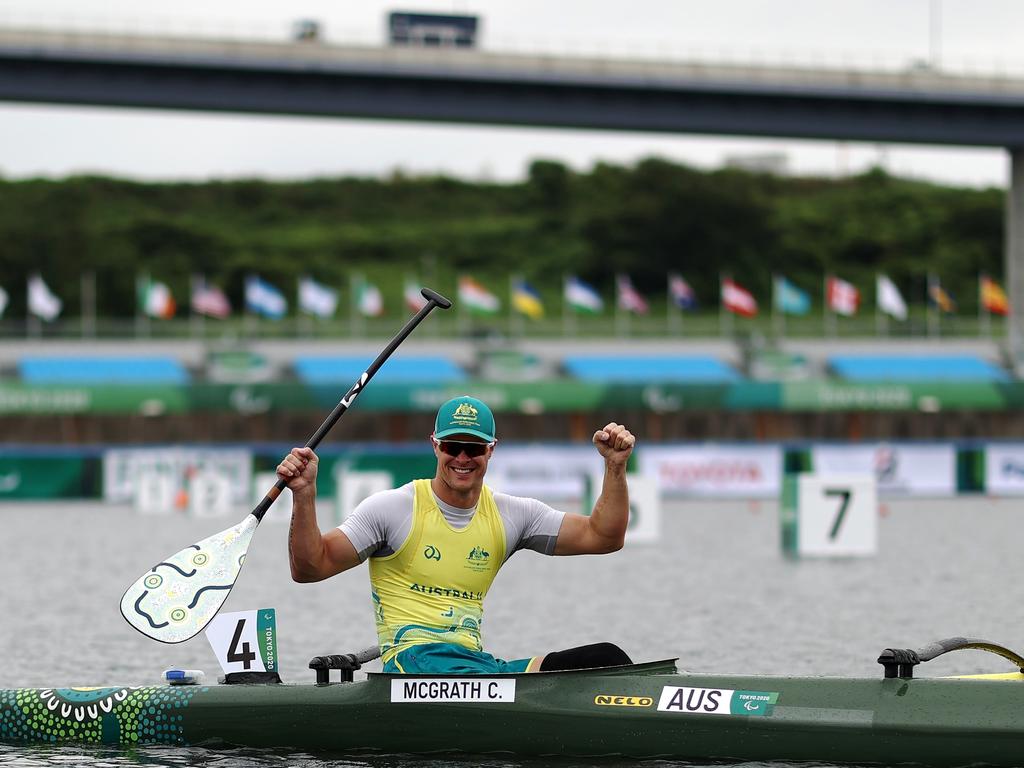
But after winning his third gold medal – and the second in Tokyo – on Saturday, the inspiring former combat engineer confessed that he only said it to try and calm his colleagues.
“I didn‘t even think I’d get to the Paralympics, it was just a comment I made to give my comrades hope and to help them get through the trauma, ”he said.
“I could see that they were hurting in their heart and in their minds so having this happen is very special and a tribute to them as well.
“I‘m just one part of a puzzle piece that creates this moment and these Games, right from the battlefield of Afghanistan when I was laying on the dirt potentially going to die.
“All the people from that moment all the way through to my recovery and here on the line and my family and friends beyond that … this is just a tribute to that.”
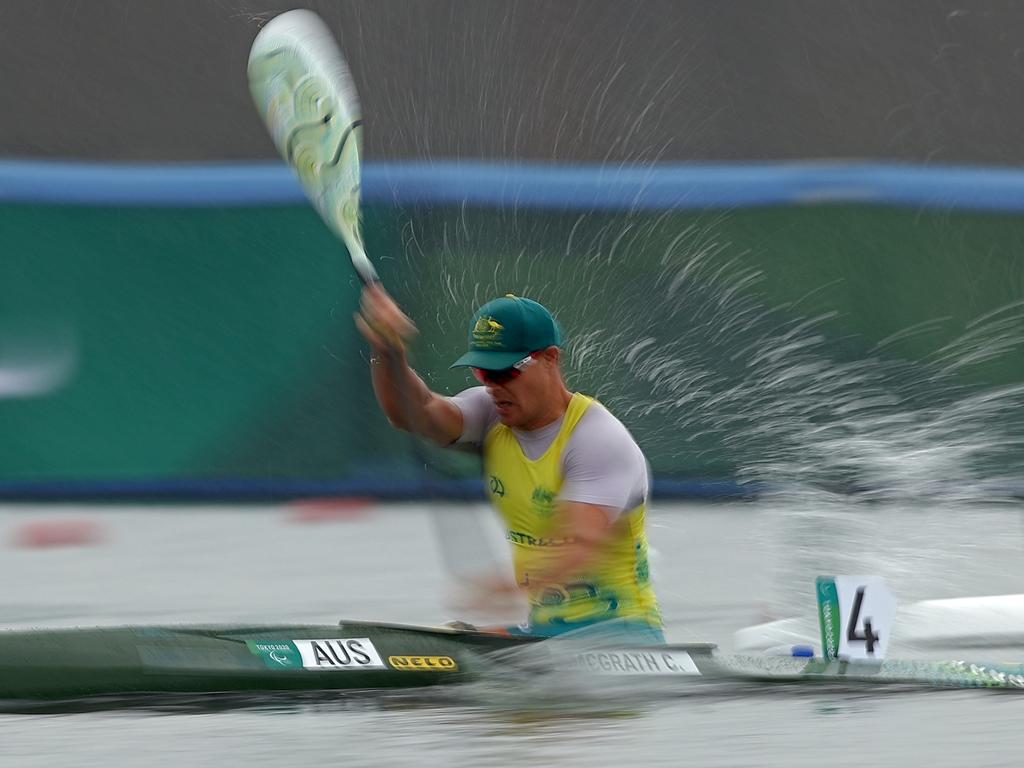
With 10 world titles and now three Paralympic gold medals, McGrath’s record speaks for itself. He successfully defended the kayak title he won in Rio, and also won gold in Va’a, which has been added to the program for the first time.
He has been inundated by well wishers, including Prime Minister Scott Morrison, and says he plans to take a year off before starting his preparations for Paris in 2024.
“I’m looking forward to it. I really want to compete there but I think my ambitions will be slightly changed,” he said
“I‘m definitely going to have a year off next year. I am a little bit tired and sore, I need my body to recover. Five years hammering the same block of steel is pretty hard, so I’m keen for a break and some time out. But at the same time, I love competing. I love representing Australia. I’m looking forward to the opportunity to do it again if I qualify.”
INSPIRATIONAL AUSSIE’S FINANCIAL PLEA
Inspirational Paralympian Curtis McGrath has called on corporate Australia to follow the federal government’s lead by kicking the tin to help all Australian athletes with disabilities.
McGrath won his second successive gold medal in para-canoe in Tokyo on Friday but paused from his celebrations to plead for more financial help while record numbers of Australians are tuning in to watch the team compete in Tokyo.
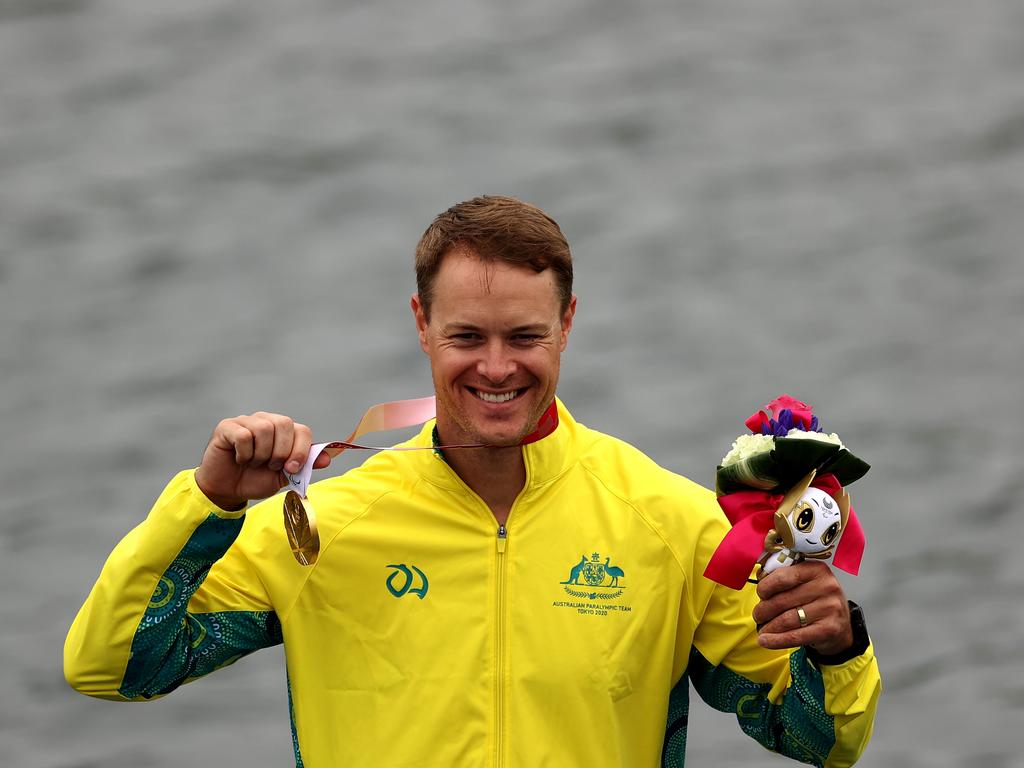
The 33-year-old former soldier welcomed the government‘s announcement that Australian Paralympians will receive the same cash bonuses as Olympic medal winners but said the big end of town also needed to dig into their pockets.
“We just want an equal playing field and we want equal opportunities because that‘s what the Paralympics are about,” McGrath said.
“Everyone, even corporate Australia, can get out there and sponsor a Paralympic athlete, not just myself, not just a gold medallist, but someone who‘s working every day, working hard.
“(Paralympians) are doing the same amount of work, the same amount of effort as an Olympian, as an NRL player and an AFL player so they should get the rewards that they deserve.”
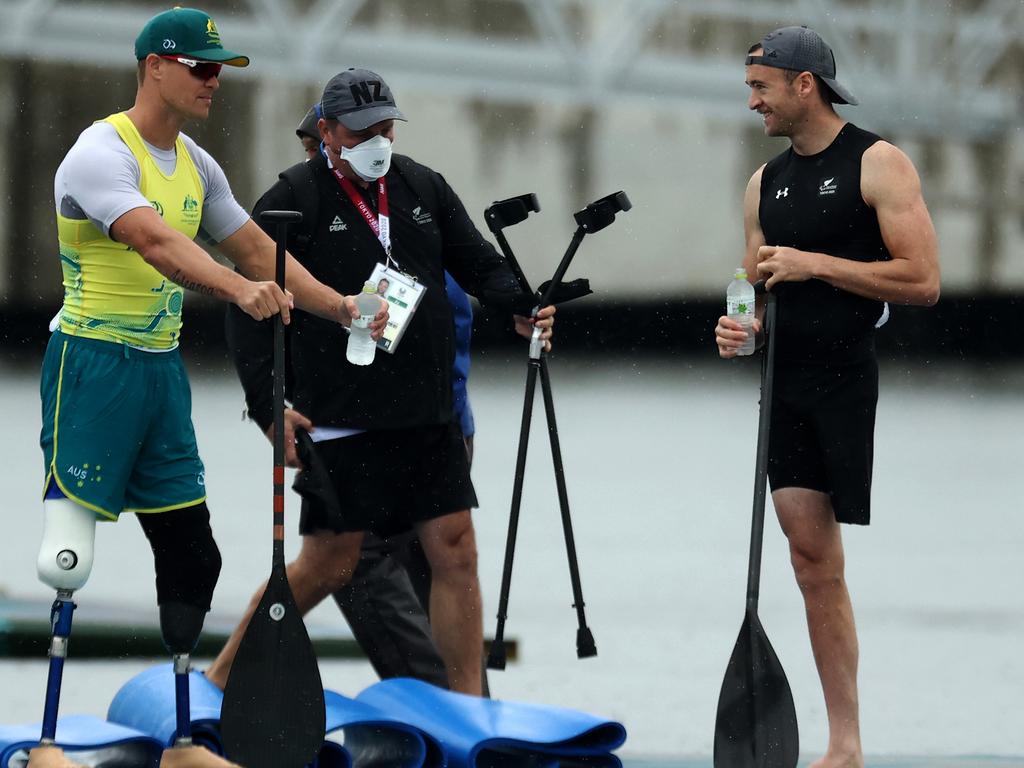
McGrath is one of the few high-profile Paralympians who does get some support, but he’s had to work double overtime for the recognition he’s received.
He lost both his legs when a mine exploded while he was serving with the Army in Afghanistan and has admitted that the Taliban’s return to power in the country has made it hard to focus on his Paralympic races.
“It’s a tragic situation in Afghanistan and my heart does go out to the people there,” he said.
“I was there searching for improvised explosive devices, clearing the way for school buses, people going to work or whatever.
“I‘m pretty content with my contribution to the country. It’s up to the people of Afghanistan now and hopefully they can find a peaceful resolution.”
It’s part of sporting folklore that at the same instant McGrath was being airlifted out of Afghanistan after he was injured he immediately declared he wanted to be a Paralympian and true to his word, he has since established himself as the best para-canoeist in the world, winning multiple world titles.
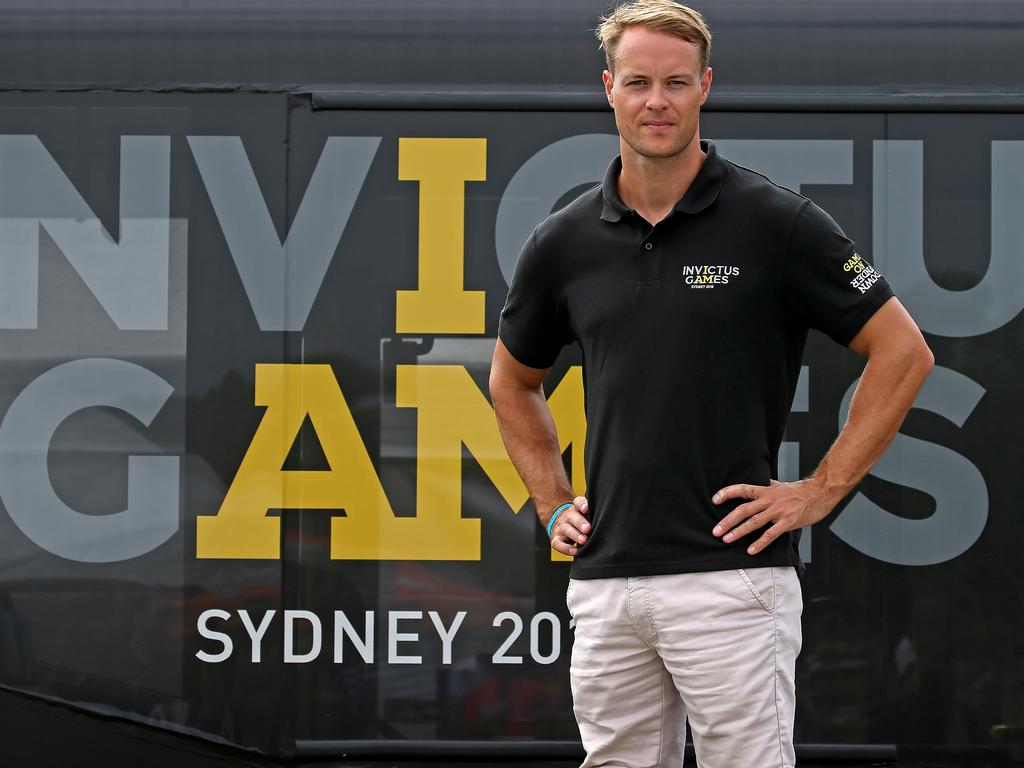
He won the KL2 kayak gold medal when the sport was introduced to the Paralympics for the first time at Rio in 2016 and defended his title with a commanding performance in Tokyo.
“Rio was all so new to me, the high performance of it all, that level of competition, the competitiveness of everyone and it‘s really great to have that,” said McGrath, who is also through to the final Saturday’s Va’a event, which has been added to the program for Tokyo.
“I‘m now more experienced, a little bit older, an extra year I’ve worked on things and I felt really comfortable.
“There were nerves but that means it means something to me and I‘m just super happy with my performance.
“Going back to back, it‘s one of those feelings that confirm that I can come to a big event like this or the biggest event and perform.”
Susan Seipel, who represented Australia in equestrian before changing sports to canoe, won silver in the women’s Va’a race on Friday to capture her second medal after getting bronze in kayak in Brazil five years ago.
“It‘s amazing, I’m just really grateful to be here. They were able to put on the Games, and I’m extra happy about it,” said Seipel, who has also entered kayak in Japan.
“It‘s one up, it’s a better colour than bronze, so it’s awesome … It’s the debut of this event at the Paralympics so it’s really special to be making history again.”
Originally published as Tokyo Paralympics: Kayaker Curtis McGrath picks up his second gold medal for the Games


